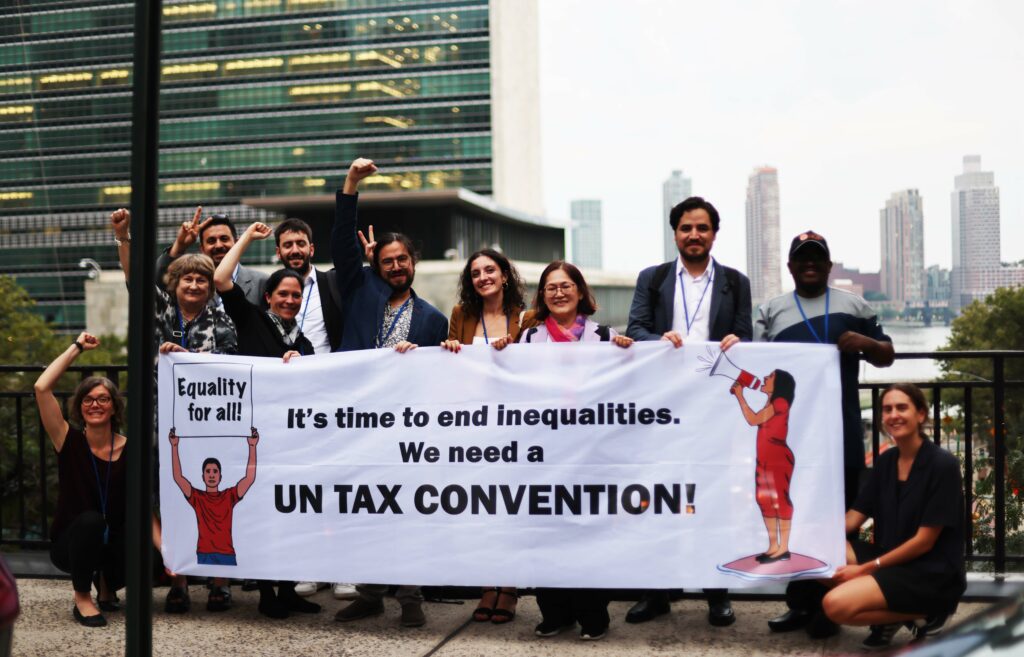
Written by Anne Marte Skaland, Norwegian Church Aid
The UN members are continuing the negotiations on new global tax rules in New York this summer. The overall goal is to close the loopholes enabling tax abuse, so the money can be used for schools, hospitals and much needed climate financing. More concretely, the states are discussing the Terms of Reference for a Framework Convention on International Tax Cooperation. It’s taking place from 29 July to 16 August 2024.
Although there are many issues to resolve and a long road ahead of us, one objective is already achieved. The states are now gathered in an open and inclusive arena with civil society in the room. More than 20 civil society organizations from Africa, Asia, Latin America and Europe are present in New York, and have actively participated with statements, daily newsletters, campaigning and lobby meetings.
The discussions have been about the content of the Terms of Reference – most time has been spent on the preamble (explaining the intention of the convention), the principles and the protocols.
The protocols that are suggested in the current draft is taxation of the digitalized and globalized economy; taxation of income derived from cross-border services; tax-related illicit financial flows; prevention and resolution of tax disputes; taxation of high-net worth individuals; tax measures on environmental and climate challenges; exchange of information for tax purposes; mutual administrative assistance on tax matters; and harmful tax practices.
There has been a long discussion on whether a reference to human rights should be included in the convention. Some countries have argued that human rights never have been a part of a tax treaty before, but others say that that’s exactly why we need to include it. This convention should take international tax law a fundamental step further and the states should make sure that human rights is a guiding principle, is the message from civil society.
The states will continue negotiations until the 16th of August and hopefully adopt the Terms of Reference for a tax convention. The next step is to take the process to the UN General Assembly the upcoming fall and hopefully get a mandate to start negotiations for the convention. This is something civil society has been fighting for for a long time, and it’s urgent to get in place international tax law to keep the revenue where it belongs.
